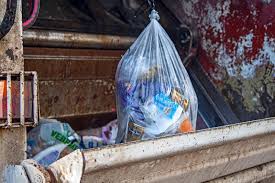Waste management laws and regulations are rules created by governments to control how we handle and get rid of our trash and garbage. These rules help protect our environment and health by making sure waste is disposed of safely, recycled when possible, and not just thrown anywhere.
They can include laws about recycling, landfill usage, hazardous waste, and penalties for illegal dumping. Basically, they’re like guidelines to make sure we deal with our waste responsibly.
Waste management laws and regulations might sound complicated, but they’re actually pretty straightforward rules made by governments to help keep our environment clean and healthy. These rules ensure that we deal with our trash and garbage in a responsible way. Let’s dive into what waste management laws are all about and why they matter.
1. Waste Sorting and Recycling: Many laws encourage us to separate our waste into different bins for recycling, like paper, glass, and plastic. This helps us reuse materials and reduce the amount of waste that ends up in landfills.
2. Landfill Usage: Waste can be sent to landfills, but these laws limit what can go there and how it’s done. This prevents harmful chemicals from seeping into the ground and harming our water and soil.
3. Hazardous Waste: Some types of waste, like chemicals or electronic waste, are dangerous to our health and the environment. Laws ensure they are handled, transported, and disposed of safely.
4. Illegal Dumping: Dumping trash anywhere we want is a big no-no. Laws have penalties for those who illegally dump waste, which can harm our neighborhoods and nature.
5. Protecting Wildlife: Waste management laws also protect animals. They prevent litter from harming wildlife and marine life, which often mistake plastic for food.
6. Health and Safety: Regulations make sure waste workers are safe and that waste facilities follow safety standards. This keeps everyone protected from harm.
7. Reducing Waste: Some laws encourage us to use less stuff or find ways to reuse items. This reduces the overall amount of waste we produce.
8. Monitoring and Enforcement: To make sure these rules are followed, there are agencies and inspectors who check if businesses and individuals are doing their part.
Why Do Waste Management Laws Matter?
These laws might seem like a lot of rules, but they’re crucial for several reasons:
1. Environmental Protection: They help safeguard our air, water, and land from pollution caused by improper waste disposal.
2. Health and Safety: Proper waste management keeps us and the people who handle waste safe from harmful substances.
3. Resource Conservation: Recycling and reducing waste help us make the most of our resources and reduce the need for new raw materials.
4. Sustainable Future: Following waste management laws contributes to a cleaner, healthier world for future generations.
Waste management laws and regulations are all about making sure we handle our waste responsibly and protect our planet. By following these rules, we can make a big difference in preserving the beauty and health of our environment.
Read Also: Exploring the Different Types of Wastes
The Benefits of Waste Management Laws and Regulations

Waste management laws and regulations may not be the most exciting topic, but they bring many important benefits to our communities and the environment. These rules help us handle our waste in a responsible way, and here’s why that’s a big deal:
1. Clean and Healthy Environment: Waste management laws ensure that our neighborhoods, parks, and natural areas stay clean and free from unsightly garbage. This cleanliness makes our surroundings more pleasant and reduces the risk of disease and pollution.
2. Pollution Prevention: By controlling how waste is disposed of, these laws prevent harmful chemicals and pollutants from seeping into our soil and water. This protects our drinking water sources and keeps our ecosystems healthy.
3. Resource Conservation: Recycling and waste reduction measures, often encouraged by these laws, help us save valuable resources. When we recycle, we use less energy and raw materials to create new products.
4. Reduced Greenhouse Gas Emissions: Proper waste management, including recycling and composting, reduces the amount of waste that rots in landfills. This, in turn, lowers the production of methane, a potent greenhouse gas that contributes to climate change.
5. Job Creation: The waste management industry generates jobs, from waste collection to recycling centers. These jobs not only contribute to the economy but also provide opportunities for employment and career growth.
6. Public Health Protection: Waste management laws ensure that hazardous materials are handled safely, protecting the health of waste workers and nearby communities. This reduces the risk of exposure to harmful substances.
7. Wildlife and Marine Life Protection: Litter and improperly managed waste can harm animals in various ways. Waste management laws help prevent wildlife from ingesting or getting entangled in trash, ensuring the safety of our natural habitats.
8. Sustainable Future: Responsible waste management is essential for a sustainable future. By following these laws, we help create a world where resources are conserved, and our planet can thrive for generations to come.
9. Community Pride: Clean and well-managed neighborhoods foster a sense of pride among residents. People are more likely to take care of their surroundings when they see that others are doing the same.
10. Economic Benefits: Effective waste management can lead to cost savings for communities. Recycling and waste reduction programs can lower disposal costs and create revenue through the sale of recyclable materials.
Waste management laws and regulations might seem like a bunch of rules, but they’re a crucial part of our efforts to protect the environment, public health, and our future. By following these laws and doing our part to reduce, reuse, and recycle, we not only contribute to a cleaner, healthier planet but also enjoy a range of practical and economic benefits in our communities.
Read Also: Profitable Business Ideas in Wastewater Treatment
Advantages and Disadvantages of Waste Management Laws and Regulations

Waste management laws and regulations play a vital role in keeping our environment clean and safe. However, like most things in life, they come with both advantages and disadvantages. Let’s explore these to understand the bigger picture.
Advantages
1. Environmental Protection: Waste management laws help protect the environment by preventing pollution. They ensure that hazardous waste is disposed of safely, reducing harm to ecosystems, air, and water.
2. Public Health: These laws safeguard our health by controlling the handling of dangerous waste materials. This protects waste workers and nearby communities from exposure to harmful substances.
3. Resource Conservation: Regulations encourage recycling and waste reduction, which conserves valuable resources. This means we use fewer raw materials and less energy to make new products.
4. Reduced Greenhouse Gas Emissions: Proper waste management, including recycling and composting, reduces the release of methane, a potent greenhouse gas. This helps combat climate change.
5. Job Creation: The waste management industry generates jobs in waste collection, recycling, and related fields, contributing to the economy and providing employment opportunities.
6. Wildlife Protection: Waste management laws help prevent litter and improper waste disposal from harming wildlife and marine life. This protects our natural habitats and biodiversity.
7. Sustainable Future: Responsible waste management is crucial for a sustainable future, ensuring that resources are used wisely and our planet thrives for generations to come.
Disadvantages
1. Compliance Costs: For businesses and municipalities, following waste management regulations can be expensive. Setting up recycling programs and hazardous waste disposal facilities can strain budgets.
2. Administrative Burden: Compliance with complex waste management laws often requires significant paperwork and reporting, which can be time-consuming and tedious.
3. Limited Flexibility: Some argue that rigid waste management laws might not account for unique local circumstances. This lack of flexibility can lead to inefficiencies.
4. Resistance to Change: People may resist adopting new waste management practices required by laws, such as recycling or reducing waste, leading to slower progress.
5. Regulatory Compliance Challenges: Monitoring and enforcing waste management laws can be challenging for governments. Some individuals and businesses may try to evade regulations, leading to enforcement difficulties.
6. Costs Passed to Consumers: When businesses face higher waste disposal costs due to regulations, these costs can sometimes be passed on to consumers through higher prices for goods and services.
Waste management laws and regulations bring many advantages, primarily related to environmental protection, public health, and sustainability. However, they also come with disadvantages, such as compliance costs and administrative burdens.
Balancing these pros and cons is essential to ensure that waste management policies are effective and fair for everyone involved. The goal is to create a cleaner, healthier planet while minimizing any negative impacts on businesses and individuals.
Read Also: What Are The Different Types Of Agricultural Careers

